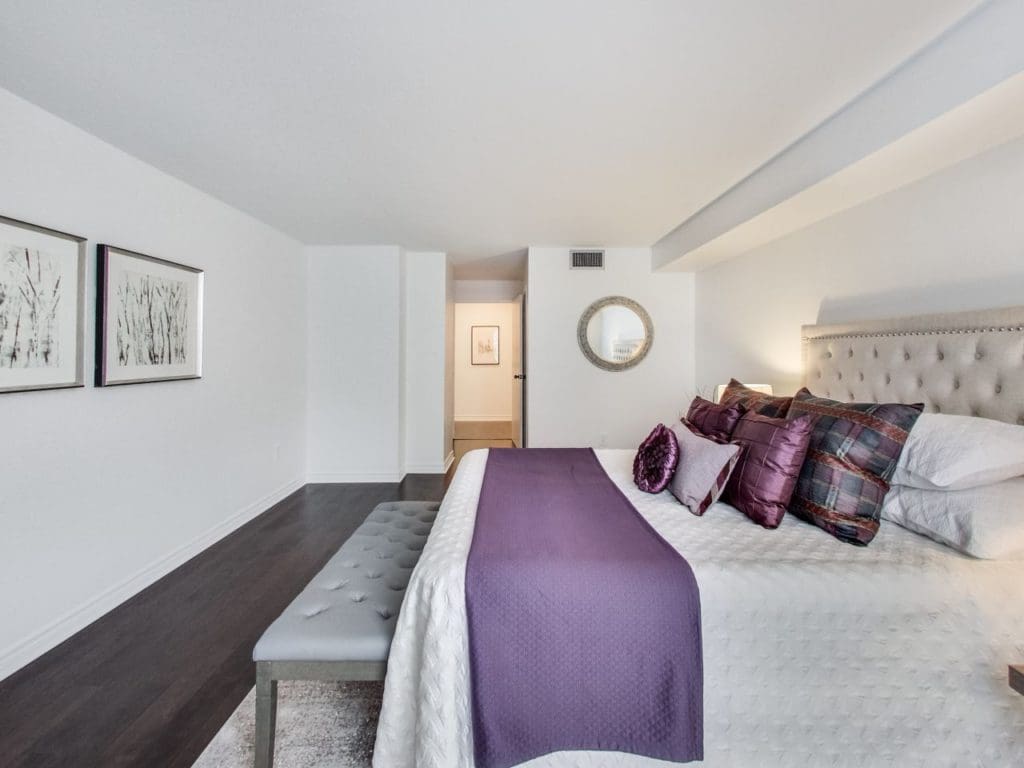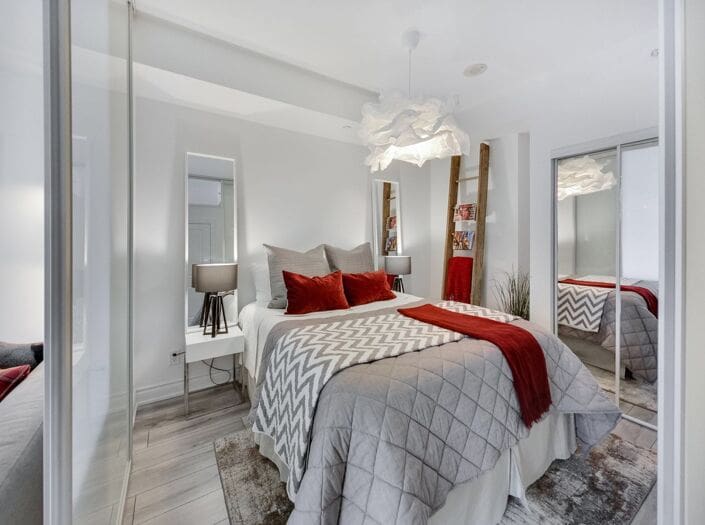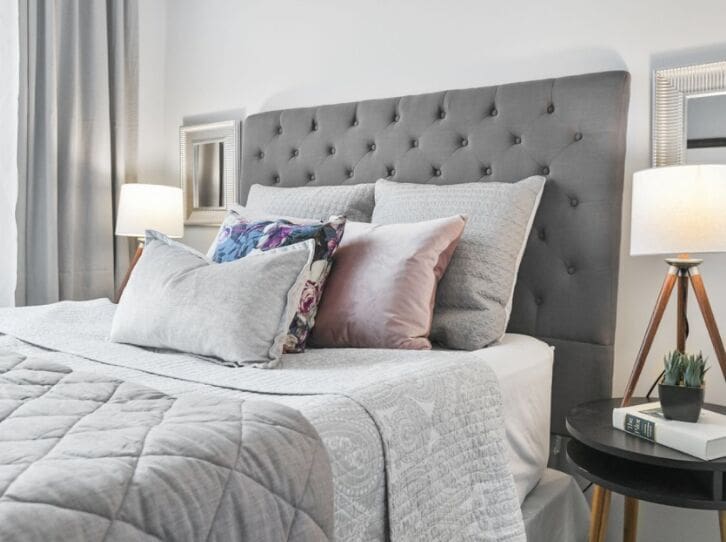Stylish bedding can make or break a bedroom.
Far too many of us ignore our bedding because we’re the only people who see it. We’ll invest time and money in our living room but never get around to making our bedrooms shine. That needs to end. Just because our bedrooms aren’t public doesn’t mean they aren’t worthy of our best efforts. YOU have to see your bedroom every day and climb into bed every evening; why not climb into a Monet instead of a Picasso? Walking into a well-appointed room and a well-dressed bed will positively impact your life and doesn’t have to be difficult to maintain or expensive.
Not sure if your bedding needs an update? Should the following apply to you, the answer is YES!
- If your bedding is as old as your teenage children
- If the colour is several shades lighter than when you purchased it
- If you can see the contours of the bed through the outermost layer
- If it consists of only one colour or one layer
- If you had it in college or inherited it from your parents
On any given week, I make up to twelve different beds in addition to my own daily. You might think I was a hotel maid or both very considerate and wildly promiscuous, but I’m a home stager, and I too struggle from time to time turning a dull bed into something beautiful. Through trial and error, I’ve learned that the best ways to create a welcoming bed by following these simple guidelines.
Layering

Every bed needs at least two layers, and no, sheets don’t count.
I prefer the thickness of a duvet or comforter but coverlets are fine too. Your base layer needs to be practical because other than your sheets, you’ll be using it to regulate your temperature nightly, so choose appropriately. Duvets come in different weights and duvet covers come in a range of designs that are easy and relatively inexpensive to change when compared to comforters. Consider how your first layer drapes on your bed. If you have a bed frame with headboard and footboard, it will likely drape perfectly on its own, but if you have a metal frame you’ll need a skirt to cover the box spring and whatever dust bunnies may be hiding underneath it. The second layer should act as a runner, running across the width of the bed between the centre and foot of the bed. Coverlets are good for this layer, but folded blankets or duvet covers work just fine.
You can also create the look of multiple layers by folding back your duvet and sheets so that several layers can be seen near the head of the bed as well. When the seasons change you can switch the layers and keep the style. In summer you’ll use your coverlet as a base layer and the duvet cover as a runner. Come winter, the duvet goes back in the cover and the coverlet becomes the runner.
Designer tip: Don’t want to spend money on another blanket? Head to your nearest fabric store and buy a few yards of your favorite fabric. Fold and drape it just as you would a coverlet over the foot of your bed and you’ll add a layer without the expense or weight of another blanket. Buy an extra yard and make a pillow to place in front of your sleeping pillows for even more style.
Add Colour and Pattern

Your bed is a canvas so why not paint something beautiful?
If you’re not a fan of colour or pattern (bless your heart) you can create something gorgeous with a neutral palette as well. Solid colours for the base layer can be easier to live with but if you’re brave enough to commit to a bold pattern, go for it. When your base layer has a pattern your next layer should be a solid, but the opposite isn’t always true.
Layers should compliment one another so coordinating colours is important. Using your base layer as a guide, find something that pairs well with it to add on top. Monochromatic looks are the easiest to pull off and can easily be switched out to work with just about anything. White sheets topped with a grey coverlet and paired with a pinstripe or flannel printed runner for example, gives you a sophisticated and masculine look. White sheets topped with a cherry blossom duvet and jewel tone runner create an equally attractive but more feminine look.
Pillows Are For More Than Just Sleeping

Pillows give us another opportunity to add layers to our beds. Your sleeping pillows are important, but you should always have at least one layer behind or in front of them. Two sets of standard pillows are a great start. The pillowcases that match the sheets will generally be at the back and the ones that match your base layer at the front.
Adding one or two decorative pillows in front will give you that hotel look, without too much trouble. Two lumbar (rectangular) pillows in front of each sleeping pillow is one option, and one square one with one lumbar in front of it centred on the sleeping pillows is another. There are a million options when it comes to pillows so experiment until you create your masterpiece. You want to be thinking about adding texture and a third colour with decorative pillows. A third colour will add sophistication to the look even if all three are different shades of the same colour.
Making the Bed
Of course, none of this matter if our beds are never made. Remember my Picasso vs. Monet analogy? I love Picasso, but no one wants to climb into an abstract bed. For many of us, the habit of making our beds comes very early on, but new habits can be formed just as bad habits can be broken. When you think of your bed as a work of art you’ll be more likely to make it, and the satisfaction of starting your day off creating something beautiful can only inspire good things to come.
Sweet dreams!
